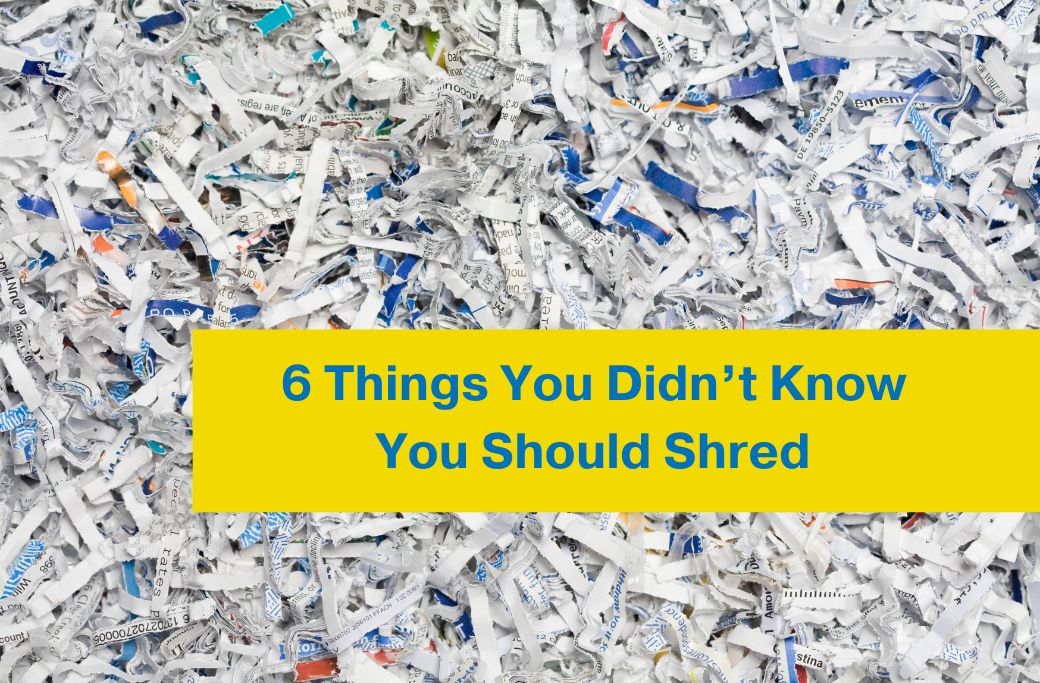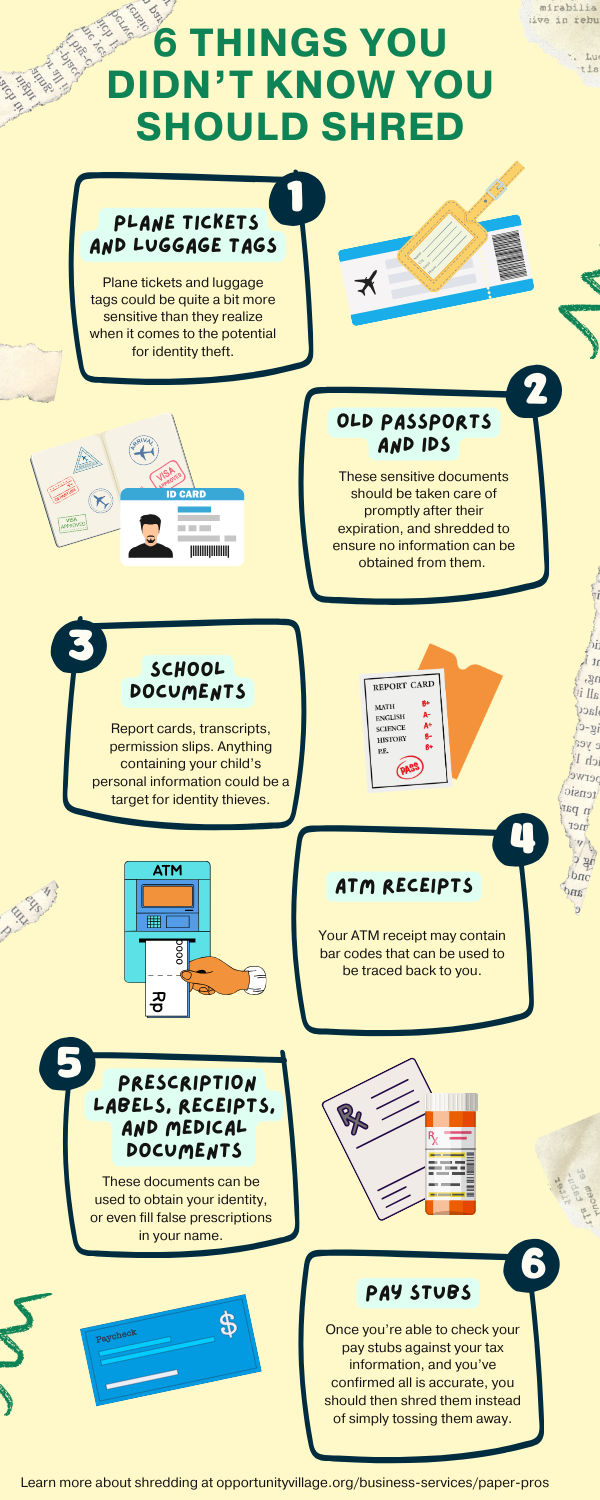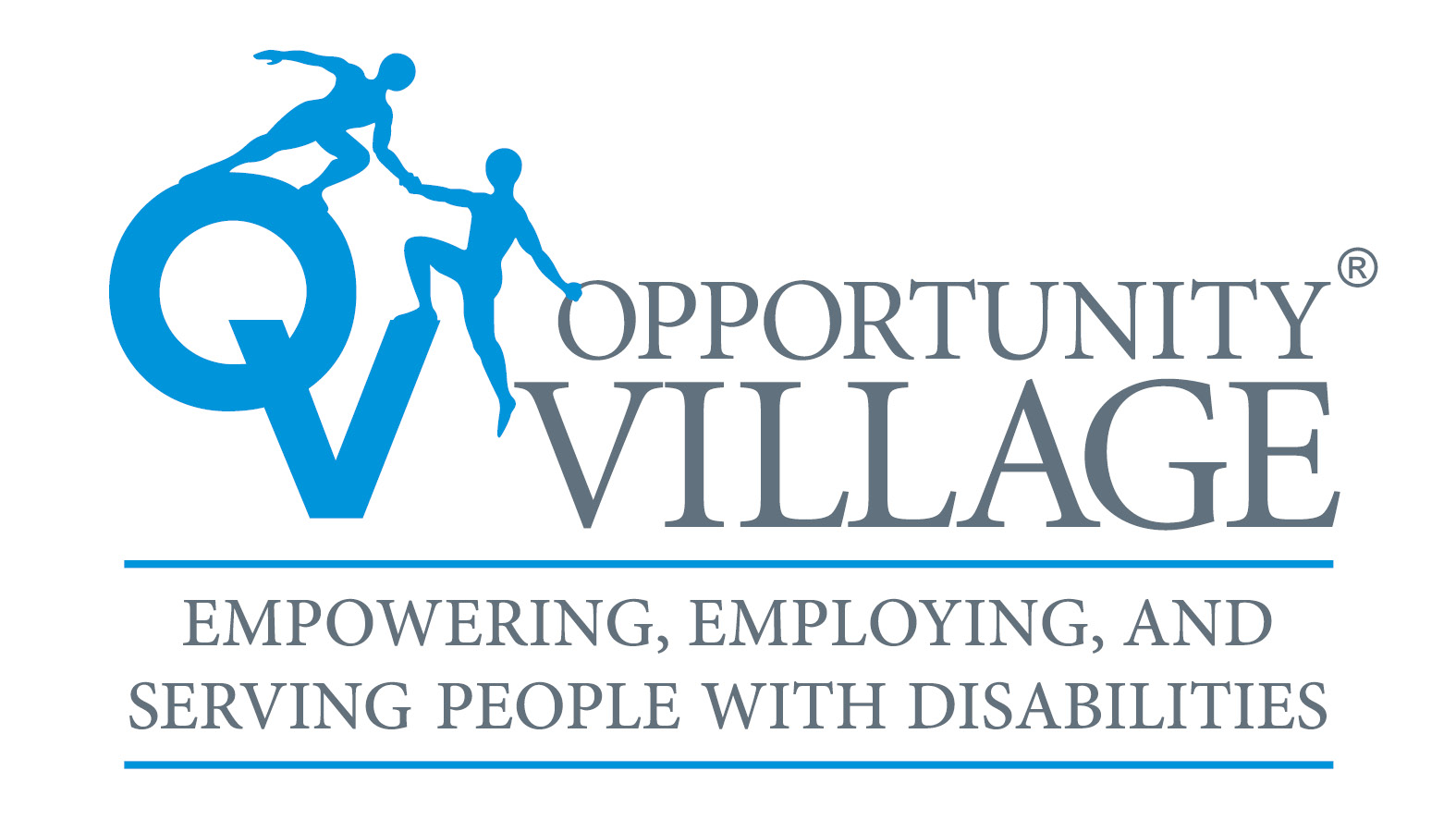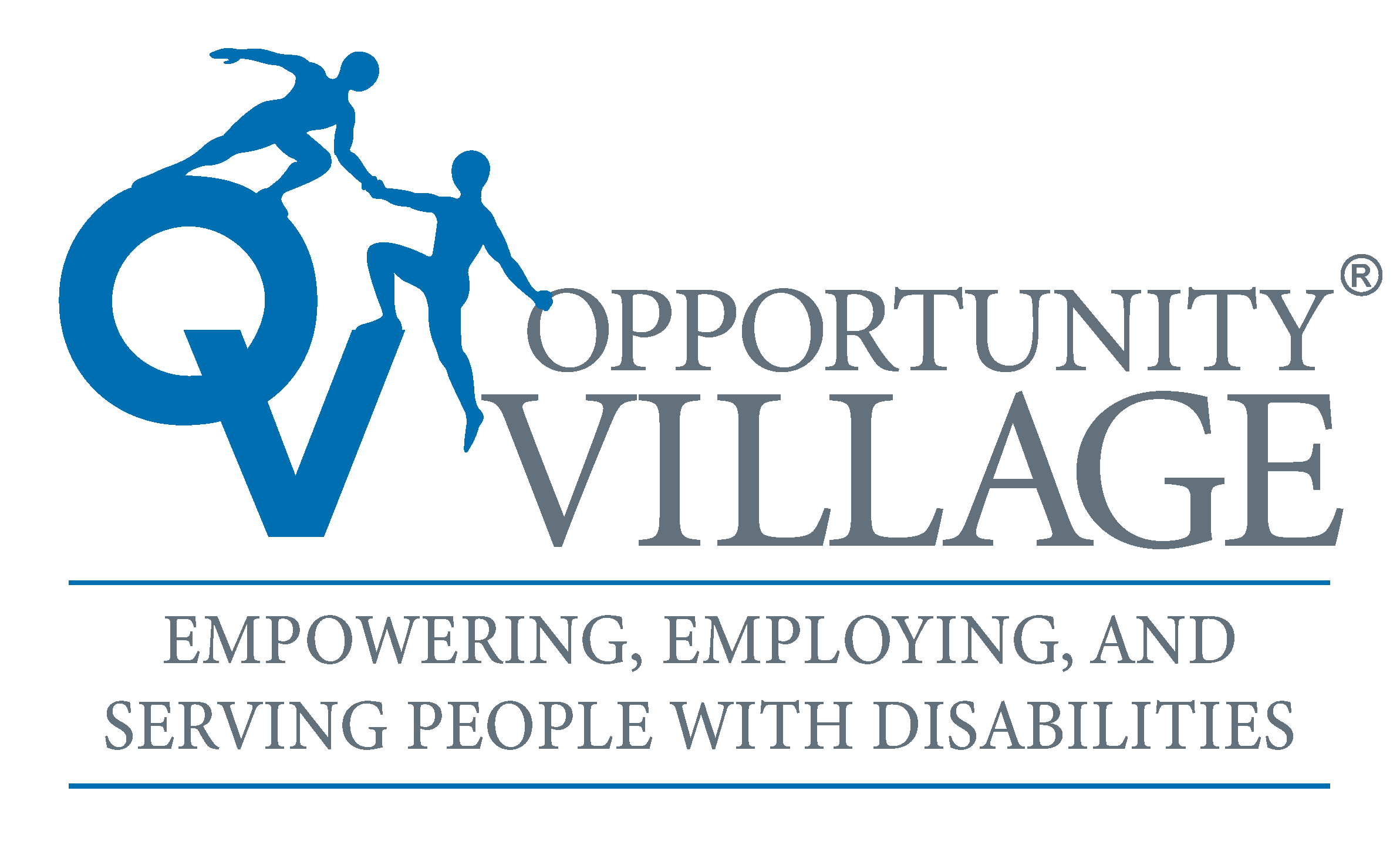
Identity theft is a major issue for those in the younger generations.
Why is it such an issue?
According to the Identity Fraud Survey Report by Javelin Strategy and Research, it’s a combination of both behavior and inaction. One of these inactions is brushing off paper shredding.
But believe it or not, it’s still necessary in today’s digital age.
How Paper Shredding Helps To Protect Your Identity
In 2018, 14.4 million Americans became identity theft victims. Most of these had no idea just how easy it is to have their identities stolen until it happened to them. Between online and paper documents, an American is the victim of identity theft every 22 seconds.
When you throw away sensitive documents, you’re putting your information on display and making it available to anyone.
What can you do about it? Paper shredding is your best course of action. If you’re asking yourself “What should I shred?”, here are six important documents that should be shredded to protect your identity:
1. Plane tickets and luggage tags
The younger generations, Millennials and Gen Z, are the most well-traveled generations in history.
What most don’t realize is that those plane tickets and luggage tags could be quite a bit more sensitive than they realize when it comes to the potential for identity theft. Once you’re back from a big trip, save your tickets and tags to have shredded instead of simply tossing them into the trash.
2. Old Passports and IDs
Identity documents like drivers’ licenses, ID cards, and passports give identity thieves just about everything they need to do their dirty work. These sensitive documents should be taken care of promptly after their expiration, and shredded to ensure no information can be obtained from them.
Passports are usually shredded page by page, including the biometric page. ID cards and drivers’ licenses should be run through a heavy-duty cross section shredder.
3. School documents
Children are 51 times more likely to be victims of identity theft when compared to their parents – a sobering statistic for parents of little ones everywhere.
Report cards, school correspondence, and even permission slips should be shredded instead of being tossed away. Anything containing your child’s personal information could be a target for identity thieves.
4. ATM receipts
While it may not seem as though an ATM receipt has that much information on it, many contain bar codes that can be used to be traced back to you.
Before you crumple up your ATM receipt and toss it into a garbage can closest to your chosen ATM machine, consider what information you could be leaving out for the public. To keep safe, these should be saved, tucked away, and shredded at your earliest convenience.
5. Prescription labels, receipts, and medical documents
Prescription labels and receipts are particularly sensitive. Not only do these contain personal information like your name, phone number, and address, they also contain your medical information. These documents can be used to obtain your identity, or even fill false prescriptions in your name.
Along with prescriptions, insurance documents with benefits and claim information should be shredded as well.
6. Pay stubs
Pay stubs are one document that should be saved (learn more below), and then shredded. Once you’re able to check your pay stubs against your tax information, and you’ve confirmed all is accurate, you should then shred them instead of simply tossing them away.

Should All Important Documents Be Shredded?
While many important documents should be shredded, there are some that should be kept, and others that should be retained for a certain period of time before shredding.
Documents that should be kept forever include:
- Social security card
- Birth certificate
- Marriage certificate
- Adoption papers
- Death certificates
- Divorce decree
- Wills
- Tax returns
- Mortgage, student, or vehicle loan payment records
Some important documents should be retained for a period of time, and then shredded at a later date. If you’re wondering “What should I shred and when?” some common retention documents include:
- Loan payment records should be kept for 7 years before shredding.
- Tax return supporting documents should be kept for 6 years if not reporting income, and 3 years if reporting income.
- Quarterly investment records in savings accounts should be kept for 1 year.
- Credit card bills and receipts should be kept for 1 month before shredding.
- Mortgage, student, or vehicle loan documents should be kept for 1 month.
- Utility bills should be kept until the payment has been fully processed.
- Home and auto insurance documents should be kept until they’re replaced with updated documentation.
- Records of home improvements should be kept until the home is sold or otherwise changes hands.
- Medical bills should be kept for 1 year before shredding.
- Large purchase receipts, like receipts for furniture, appliances, or vehicles, should be retained until any warranty has run up.
Digital Files Make For Easier Record Keeping
Identity theft isn’t just about paper documents anymore, and more often individuals are finding their sensitive information is just as at-risk online.
One option for legacy and retention documents that is a benefit of this digital age is to digitize them. Taking these documents and turning them into secure digital files allows you to shred the paper knowing your information is safe, while you’re retaining all of the important personal information you need.
Services like Paper Pros in Las Vegas securely scan documents quickly and effectively, particularly for those who wish to turn large piles of documents into safe digital files.
Keeping Your Digital And Physical Documents Safe
While being stored at home, or digitally, keeping your documents safe is crucial to ensuring you have them when you need them, and they’re not putting your identity at risk. After asking yourself, “What should I shred, and what should I save?” your next question should be “How do I keep my saved information safe?”
For physical documents, a portable and fireproof lockbox is perfect for storing documents. You know your documents are safely locked away, and they’re protected in the event of fire or flood.
For digital documents, you can password protect folders on your computer to keep files secured, or load documents onto flash drives to be kept in a lockbox with your physical documents. Cloud storage is another option, with both paid and free subscription options available.
While highly-rated free and paid services are safe, paid services typically offer more space and are a better fit for those looking to securely store a larger number of documents online.
Shredding And Scanning Made Simple
Paper Pros by Opportunity Village in Las Vegas makes it easy to scan or shred important documents in order to keep your identity protected. To learn more about staying secure and helping the Las Vegas community at the same time, see what Paper Pros can do for you.








